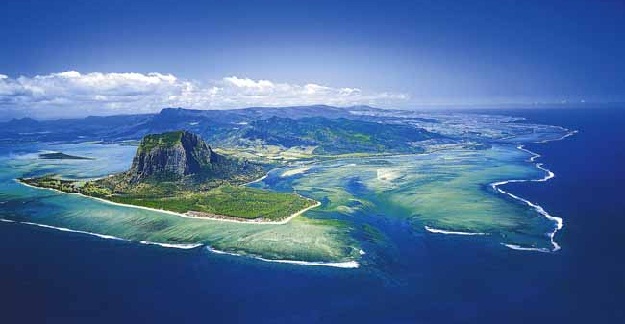Mauritius has one of the best records in Africa for democratic practice and institutions, although voters have only a narrow choice of political leaders, who are constantly switching positions, jostling for power and juggling coalition partners.

Foreign visitors could be forgiven for thinking that Mauritius is a nation of smiling, happy people in a crime-free island surrounded by sun-kissed beaches and azure-blue seas. That is the picture the brochures promise visiting tourists and, apart from occasional unfortunate incidents, the country has, by and large, delivered on the promise. But behind the smiles, which are wider in the hotels than almost anywhere else, and behind the beautiful green mountains and golden sands, Mauritius is a country struggling with issues, many of which are specific to Africa.
Mauritius is an acknowledged leader in Africa as far as democracy and the strength of institutions are concerned, and most Mauritians have faith in the democratic system, the election supervisors and the judiciary. However, the country’s democracy is rather skewed, in particular by two practices that Mauritian politicians have systematically been engaged in since independence: musical chairs and pre-electoral coalitions.
While the institutions are on the whole highly respected, and elections are free, fair and held every five years, the choice of candidates has been very limited. In over 40 years of independence, the names of those vying for power at the top have been Ramgoolam (father and then son), Jugnauth (father, son and now the father again) and Bérenger. And these names appear regularly in coalitions with each other.
The electoral system encourages political dynamics and practices that, although legal, are questionable enough to distort the democratic process. The successive pre-electoral coalitions are a case in point. There are currently four political parties competing in the Mauritian political arena: the Labour Party (LP) led by Navin Ramgoolam; the Mouvement Militant Mauricien (MMM) led by Paul Bérenger; the Mouvement Socialiste Mauricien (MSM) led by Pravind Jugnauth, who was the natural heir to the party when his father was appointed ceremonial president; and the Parti Mauricien Social Démocrate (PMSD) led by Xavier Duval. Who wins elections depends largely on the coalitions the parties form.
While in more advanced democracies, contenders run the electoral race riding on their manifestos, here the main preoccupation is with the division of constituency candidacies between each party in a pre-electoral coalition deal. Agreements are based largely on ethnic considerations. At the last general election in 2010, for example, the MSM, which commanded no more than 3 percent of support in opinion polls, managed to get 18 candidacies alongside 42 for the LP, the island’s leading party.
As these unnatural alliances, born out of political expediency, rarely last for a whole legislative term, the democratic process is corrupted by turncoats who are quick to jump on the bandwagon of the ruling coalition of the day, or switch to the opposition benches if they see a likelihood of the latter getting into power. Some politicians hold the record for somersaulting, and those who have faithfully stuck to one party are rarities. The present LP/PMSD government owes its continuity partly to two former members of the MSM who reinforced its benches in exchange for ministerial posts.
The most recent political crisis serves as a good example of the habits of the political class. Anerood Jugnauth, then president of the republic (a largely honorary role in Mauritius’s Westminster-style polity), began publicly criticising the government – his government – while holding office, soon after his son, Pravind Jugnauth, resigned as finance minister last year in connection with a corruption scandal which is still under investigation. Under fire from the press and public opinion, 82-year-old President Jugnauth was also forced from office, but the next day Mauritians woke up to the sight of the pitch-black-haired elderly statesman, with shaking hands and a wavering voice, waltzing back into the political arena and standing to challenge the current prime minister, Navin Ramgoolam.
As if reinvigorated, the Jugnauth family’s MSM party has now finalised a new deal with the MMM, which is said to command a substantial 40 percent of voter support, whereby the former has secured half of the candidacies in their coalition for the next election. The basis for this arrangement is best justified by the complex ethnic politics of Mauritius.
The press, the other major pillar of democracy, generally manages to handle these complexities and sensitivities. In a small society, where everyone knows just about everyone else, it is not always easy but Mauritius still has a largely independent, trusted and vibrant press. Some politicians, however, have a habit of resenting criticism; they perhaps dream of newspapers that fill their pages with praise for their actions. Occasionally, inaccurate information gives them ammunition they can use to hit the press – which unfortunately sometimes shoots itself in the foot by publishing false accusations or presenting opinions as facts. In spite of this, the media remains a strong institution that plays a major role in keeping both the government and the opposition in check.
Winston Churchill’s oft-quoted words – “democracy is the worst form of government except for all the others” – have rarely been more apt at describing a situation as they do today’s Mauritius.





